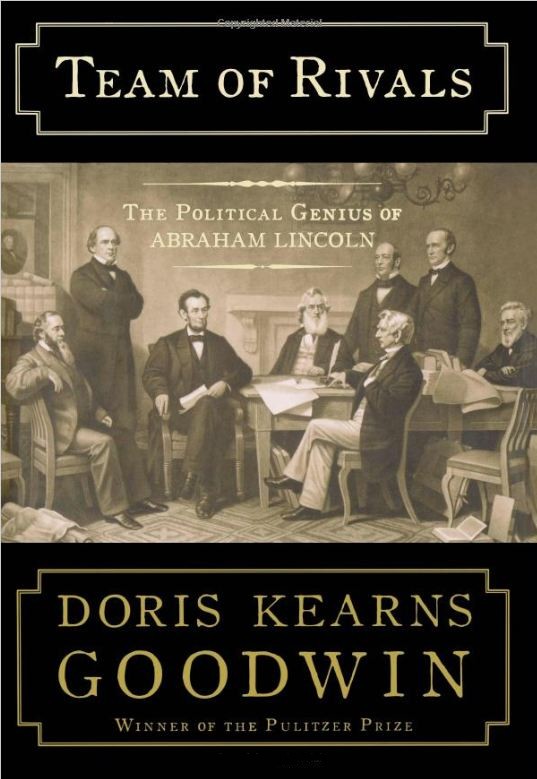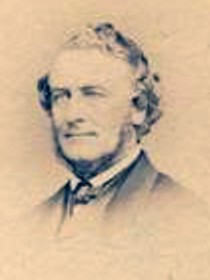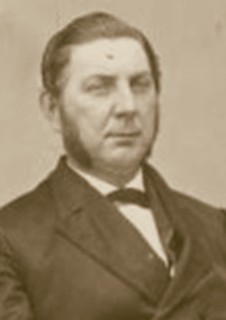Two Pennsylvania Democrats Who Voted for the 13th Amendment
Posted By Norman Gasbarro on December 6, 2012
The Stephen Spierberg film, Lincoln, is based somewhat on the Pulitizer Prize winning book by Doris Kearns Goodwin, Team of Rivals: The Political Genius of Abraham Lincoln, However, the film focuses on only a small part of the book, mainly a few pages describing the last months of the Lincoln presidency, when Abraham Lincoln was actively seeking to get the 13th Amendment passed in the U.S. House of Representatives. The amendment had previously passed in the Senate by a two-thirds vote, and all that mattered was that the House would pass it by the same majority. But, a prior vote in the House, conducted almost completely along party lines, had failed to get the super-majority.
A second vote was taken in January 1865, and Lincoln, by whatever was within his power, sought to move the amendment through the House. In all, it would take five Democrats to vote for the amendment, or it would not pass.
Two Pennsylvania Democrats courageously broke with their fellow party members and joined the Republicans in voting for the 13th Amendment. Those two Democrats, Alexander H. Coffroth and Archibald McAllister are described by Goodwin as the debate in the House began:
[James M. Ashley (Republican-Ohio)] decided to yield his time to the small band of Democrats who would support the amendment but needed to justify their shift to constituents. He called first on Archibald McAllister. The Pennsylvania congressman explained that he had changed his mind when he saw that the only way to achieve peace was to destroy “the corner-stone of the Southern Confederacy.” His remarks brought forth applause from the galleries, as did those of his colleague Alexander Coffroth. “If by my action to-day I dig my political grave,” the congressman from Somerset County proclaimed, “I will descend into it without a murmur.” (page 689).
When the vote was taken, the Speaker announced “the ayes have 119, the noes 56…. The Joint resolution has passed.”
——————————-
Archibald McAllister was born 12 October 1813 at Fort Hunter, Pennsylvania, near the present-day location of Harrisburg, Dauphin County. McAllister was elected to the 38th Congress as a Democrat in 1862 in a re-organized 17th Congressional District. Prior to election, he was an iron manufacturer. He only served one term in Congress and chose not to run for re-election in 1864. Therefore, he was a “lame duck” in the Congress in early 1865, and lost nothing politically by voting for the amendment. When he left Congress, he returned to iron manufacturing. Archibald McAllister died on 18 July 1883, and is buried in Mountain Cemetery, Royer, Blair County, Pennsylvania.
——————————-
Alexander H. Coffroth was born 18 May 1828 in Somerset, Pennsylvania. He was a Democratic newspaper publisher and member of the legal profession. He was first elected to Congress in 1862 and served until 1866 as the representative from Pennsylvania’s 16th Congressional District. His service ended in 1866, when a Republican, William H. Koontz, successfully contested the election. Coffroth returned to Congress in 1879 and served for one term. At that time he was Chair of the Committee on Invalid Pensions. He chose not to run again and returned to the practice of law in Somerset County. Alexander H. Coffroth died on 2 September 1906 and is buried in Union Cemetery, Somerset County, Pennsylvania.
——————————–
The first state to ratify the 13th Amendment was Illinois, the home state of Abraham Lincoln. The vote took place on 1 February 1865. On 2 February 1865, the second state, Rhode Island, ratified it. On 3 February 1865, a group of five states, including Pennsylvania, voted in the affirmative. But it was not until 6 December 1865 that enough states had ratified it for it to officially become part of the Constitution – too late for Abraham Lincoln to see his greatest legislative achievement become the law of the land. Ironically, it was Georgia’s ratification of the amendment that completed the process. Three northern states, New Jersey, Kentucky (Lincoln’s birth state) and Delaware had rejected it while Lincoln was still alive – and two former Confederate states, North Carolina and South Carolina (along with Georgia) made up the difference by voting yes for ratification. For a list of how the states voted for ratification and a map, see Wikipedia.
——————————-
Portraits of McAllister and Coffroth are from public family trees on Ancestry.com and are in the public domain.
 ;
;





How many Congressman won their re-election campaign after they voted for or against the 13th Amendment?
Archibald McAllister was my Great-Great Grandfather.
His son: John Wesley McAllister
His son: Walter Guy McAllister
His son: Henry John McAllister
His daughter: Shirley Jean McAllister
Archibald McAllister (Dem. PA) that voted to pass the 13th Amendment under President Abraham Lincoln was my Great Grandfather.
Archibald McAllister (Dem. PA) that voted to pass the 13th Amendment under President Abraham Lincoln was my Great Grandfather.
John A. Hanna, Grandfather of Archibald McAllister served in the First US Congress (Democrat Republican) under President George Washington. He also was involved in the Whisky Rebellion.
Archibald McAllister was my Great Great Grandfather and a very good man.